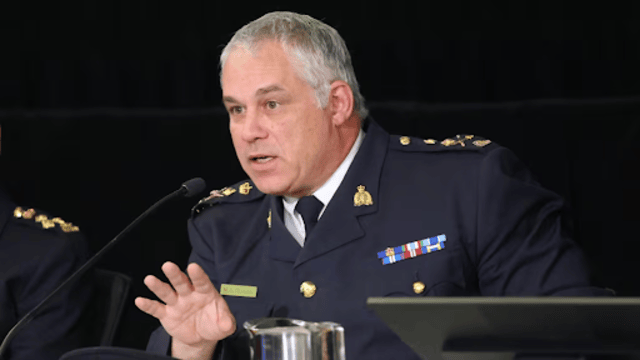
RCMP Commissioner Mike Duheme and Alberta's top RCMP officer, Trevor Daroux, discussed the tough work needed to keep the G7 Summit in Kananaskis safe. CTV
RCMP Commissioner Mike Duheme says Canada has resumed communication with India about the killing of Sikh leader Hardeep Singh Nijjar. He described the talks as “good” and said both sides plan more meetings.
Building Stronger Ties
“We are rebuilding these relationships. The conversations have been positive,” Duheme said, adding the RCMP aims to fight crime together with Indian counterparts. The positive tone reflects Canada's attempt to restore trust after diplomatic tension.
Political Backdrop
These developments follow Prime Minister Mark Carney’s invitation to India’s Prime Minister Narendra Modi to attend next week's G7 summit, despite recent friction. Carney said Modi agreed to continue “law enforcement to law enforcement dialogue.”
Serious Allegations
In 2023, a former prime minister linked Indian agents to Nijjar’s killing. Four Indian nationals now face charges. Canada also accused India of involvement in violence in Canada, accusing it of orchestrating homicides and extortion. Those claims triggered the expulsion of diplomats from both nations.
India Pushback
India denies involvement in Nijjar's death. It also criticized Canada, claiming that officials didn’t share evidence about the case. The lack of transparency stalled collaboration. Now, with renewed talks, Canada hopes to work more effectively with India.
Promises of Accountability
Carney said there is “some progress” on accountability. When asked about the inquiry into Nijjar’s death, Duheme said the matter is before the courts. He confirmed that Canadian police and Indian authorities are working together again.
Community Concerns
Sikh leaders urged Carney to rescind Modi’s invite to the G7 unless India fully cooperates with Canada and stops targeting Sikhs in Canada. They are also calling for a pause in intelligence sharing.
RCMP’s Role at G7
When asked about security concerns during Modi’s visit, Duheme clarified that the RCMP is not responsible for invitations. They will focus on ensuring safety during the summit. He invited local communities to voice concerns through liaison programs.
Reduced Threat Reports
Duheme noted that after six Indian diplomats were expelled, the threat level has dropped significantly. He said, “We’re at the same position that we were. We’ve seen a decrease,” regarding safety risks.
Task Forces Working
Canada created a task force, based in British Columbia, to coordinate efforts. It includes cooperation with Edmonton and Ontario law enforcement. Duheme said, “We’ve had success in how we handle all this.”
Protecting the Summit
The RCMP’s Integrated Safety and Security Group is in charge of G7 security. They are working with local police, security teams, and the military. Trevor Daroux, an RCMP officer, said they planned for threats from different sources, including the air.
Use of Geography and Zones
The summit, held in a remote area near Calgary and Banff, benefits from natural barriers. Daroux said geography helps limit access. Still, they have set up demonstration zones and mobile command centers. Drones, ATVs, and air restrictions will also support security.
Encouraging Peaceful Protests
The RCMP has designated protest zones about an hour away from summit venues. These zones offer infrastructure so protestors can share their messages with G7 leaders. Daroux said law enforcement encourages peaceful demonstrations.















